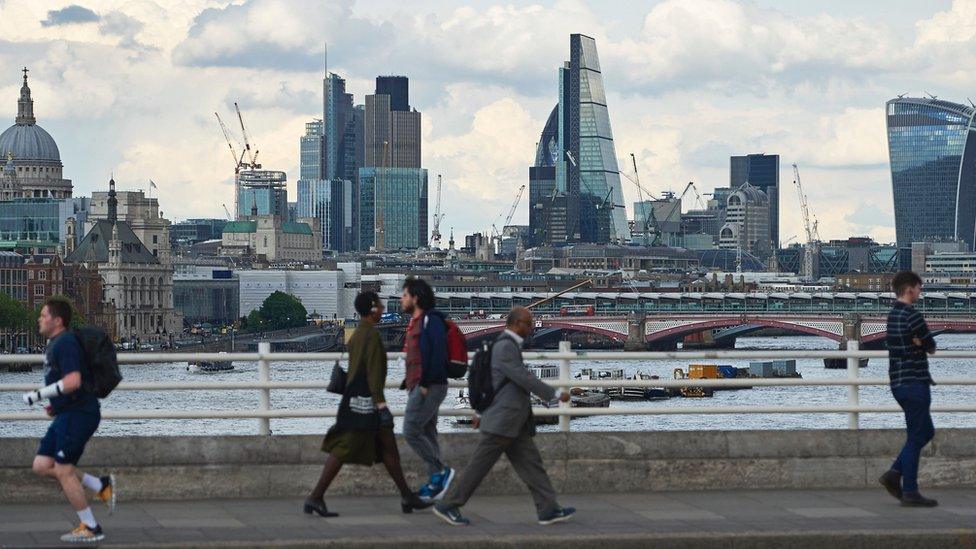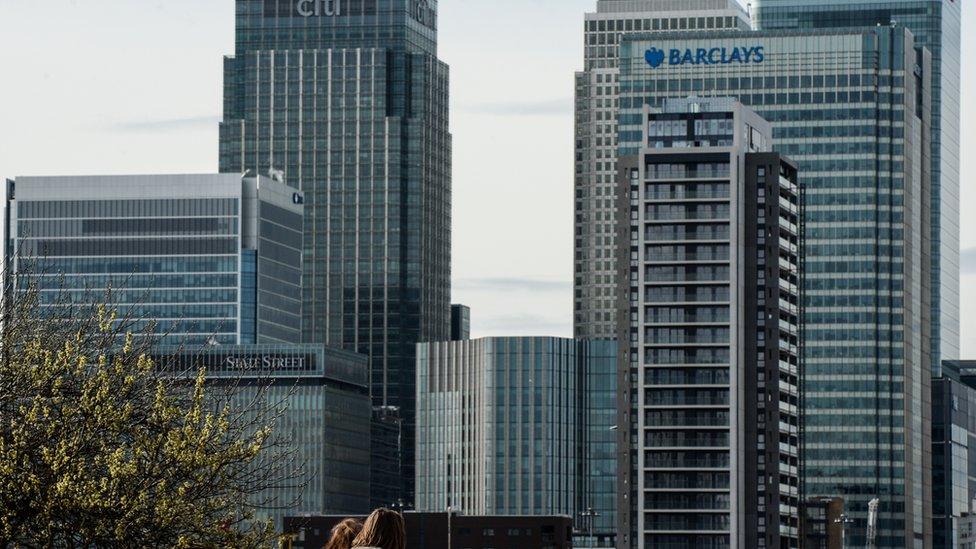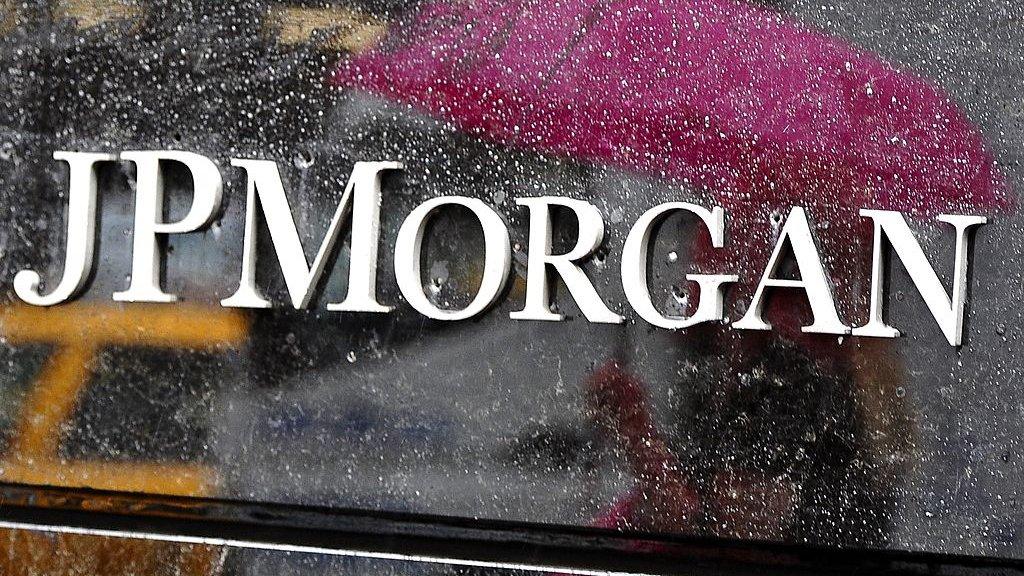Bank shares plunge on Brexit vote
- Published

UK banking stocks have plunged after Britain voted to leave the EU.
Barclays and RBS were among the hardest hit, with their shares sliding nearly 30% at the start of trading before staging a partial recovery.
Meanwhile, Morgan Stanley could relocate up to 2,000 London-based investment banking staff, the BBC understands.
This could add to fears about potential job losses in the UK financial industry, which employs 2.2m people.
Shares in the FTSE 100's five big banks fell 21% on average as markets digested the results of the referendum, with Barclays suffering the biggest one-day fall in its share price. The price eventually recovered to stand 16% down in late afternoon trading.
Shares in Europe's other main banks fell heavily, with Germany's Deutsche Bank down more than 13% and France's Societe Generale more than 20% lower.
"The UK and European banking system has been hit particularly hard as there was already fears about their health, and now there are worries about the linkages between European and British banks," said Michael Hewson, chief market analyst at CMC Markets.

Senior banking figures sought to ease fears about the impact of the vote. But there is still uncertainty about whether banks will eventually move some jobs away from London and how the UK's withdrawal from the EU will affect staffing.
JP Morgan, which employs 16,000 people in the UK, said it would maintain a large presence in the UK despite the outcome of the referendum.
'New era'
But the US bank told employees in a memo that it "may need to make changes to our European legal entity structure and the location of some roles."
Earlier this month, Jamie Dimon, JP Morgan's chief executive, said the bank could move up to 4,000 jobs after a Brexit, which he said would be "a terrible deal" for the UK economy.
Meanwhile, Douglas Flint, chairman of HSBC, said the lender's commitment to Britain was "undiminished."
"We are today entering a new era for Britain and British business," he said.
And Jes Staley, chief executive of Barclays, said: "We are a transatlantic consumer, corporate and investment bank, anchored in the UK and the US. That remains the core of our strength and the Barclays of the future."
But, concerns about the UK banking sector were fuelled by suggestions that Morgan Stanley was stepping up a process to relocate up to 2,000 staff to Dublin or Frankfurt.
Sources within the bank told the BBC that it had set up a taskforce looking into staff relocations.
No disruption
Colm Kelleher, Morgan Stanley's president, told Bloomberg two days ago that Brexit would be "the most consequential thing that we've ever seen since the war".
In a statement on Friday, Morgan Stanley flatly denied reports that it has begun the process of relocation. The bank said: "The UK's vote to leave the European Union is a very significant decision which will have a considerable impact, the extent of which will not be known for some time. There will be at least a period of two years before an actual exit takes place, so there will be time to implement any changes required to adjust our business to the new environment."
The British Bankers Association said any effects of the referendum result on "passporting", which allows financial services firms to operate more easily between countries, "could take some time to resolve and any changes to banking would take place over a long period of time".
Anthony Browne, the BBA's chief executive, also said there would be no disruption to Britain's banking services despite the turmoil caused by the vote and that people would still be able to withdraw money from cash machines and exchange currency.
The City of London Corporation also said that a "mass exit" of banks and financial institutions from London was unlikely.
"The general view of the City is that the government should push for the UK to retain our access to the single market," said Mark Boleat, policy chairman for the corporation.
- Published3 June 2016

- Published21 June 2016